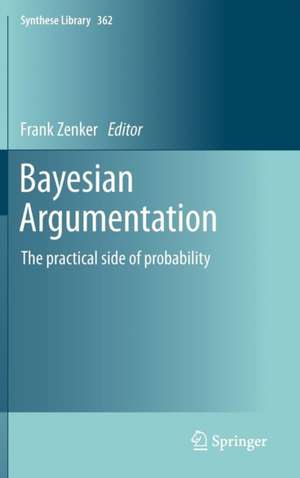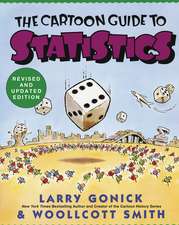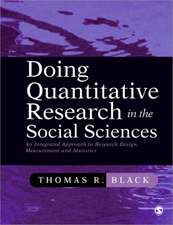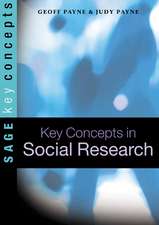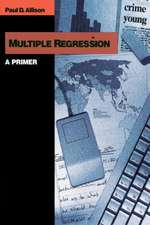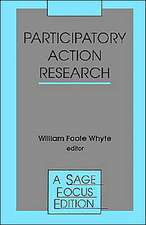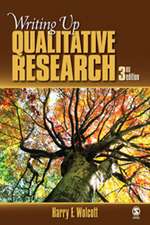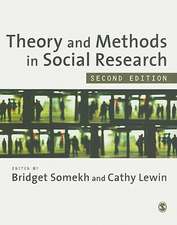Bayesian Argumentation: The practical side of probability: Synthese Library, cartea 362
Editat de Frank Zenkeren Limba Engleză Hardback – 8 dec 2012
The volume provides, for the first time, a formal measure of subjective argument strength and argument force, robust enough to allow advocates of opposing sides of an argument to agree on the relative strengths of their supporting reasoning. With papers from leading figures such as Michael Oaksford and Ulrike Hahn, the book comprises recent research conducted at the frontiers of Bayesian argumentation and provides a multitude of examples in which these formal tools can be applied to informal argument. It signals new and impending developments in philosophy, which has seen Bayesian models deployed in formal epistemology and philosophy of science, but has yet to explore the full potential of Bayesian models as a framework in argumentation. In doing so, this revealing anthology looks destined to become a standard teaching text in years to come.
| Toate formatele și edițiile | Preț | Express |
|---|---|---|
| Paperback (1) | 636.80 lei 6-8 săpt. | |
| SPRINGER NETHERLANDS – 29 ian 2015 | 636.80 lei 6-8 săpt. | |
| Hardback (1) | 643.00 lei 6-8 săpt. | |
| SPRINGER NETHERLANDS – 8 dec 2012 | 643.00 lei 6-8 săpt. |
Din seria Synthese Library
- 15%
 Preț: 638.43 lei
Preț: 638.43 lei - 18%
 Preț: 989.98 lei
Preț: 989.98 lei - 15%
 Preț: 596.69 lei
Preț: 596.69 lei - 18%
 Preț: 903.93 lei
Preț: 903.93 lei - 15%
 Preț: 586.88 lei
Preț: 586.88 lei - 15%
 Preț: 696.50 lei
Preț: 696.50 lei - 18%
 Preț: 892.90 lei
Preț: 892.90 lei - 15%
 Preț: 643.34 lei
Preț: 643.34 lei -
 Preț: 282.33 lei
Preț: 282.33 lei - 5%
 Preț: 372.19 lei
Preț: 372.19 lei -
 Preț: 443.10 lei
Preț: 443.10 lei - 15%
 Preț: 637.59 lei
Preț: 637.59 lei - 18%
 Preț: 958.88 lei
Preț: 958.88 lei - 15%
 Preț: 642.36 lei
Preț: 642.36 lei - 18%
 Preț: 1230.66 lei
Preț: 1230.66 lei - 15%
 Preț: 642.83 lei
Preț: 642.83 lei - 18%
 Preț: 1000.39 lei
Preț: 1000.39 lei -
 Preț: 389.70 lei
Preț: 389.70 lei - 15%
 Preț: 637.28 lei
Preț: 637.28 lei - 18%
 Preț: 952.26 lei
Preț: 952.26 lei - 18%
 Preț: 1231.32 lei
Preț: 1231.32 lei - 15%
 Preț: 645.96 lei
Preț: 645.96 lei -
 Preț: 395.85 lei
Preț: 395.85 lei -
 Preț: 400.47 lei
Preț: 400.47 lei - 18%
 Preț: 1225.48 lei
Preț: 1225.48 lei - 15%
 Preț: 638.89 lei
Preț: 638.89 lei - 18%
 Preț: 1232.09 lei
Preț: 1232.09 lei -
 Preț: 380.45 lei
Preț: 380.45 lei -
 Preț: 394.87 lei
Preț: 394.87 lei - 15%
 Preț: 640.37 lei
Preț: 640.37 lei - 15%
 Preț: 639.08 lei
Preț: 639.08 lei -
 Preț: 381.98 lei
Preț: 381.98 lei - 15%
 Preț: 643.00 lei
Preț: 643.00 lei - 15%
 Preț: 672.29 lei
Preț: 672.29 lei
Preț: 643.00 lei
Preț vechi: 756.47 lei
-15% Nou
Puncte Express: 965
Preț estimativ în valută:
123.05€ • 127.100$ • 101.59£
123.05€ • 127.100$ • 101.59£
Carte tipărită la comandă
Livrare economică 14-28 aprilie
Preluare comenzi: 021 569.72.76
Specificații
ISBN-13: 9789400753563
ISBN-10: 940075356X
Pagini: 224
Ilustrații: VIII, 216 p.
Dimensiuni: 155 x 235 x 18 mm
Greutate: 0.49 kg
Ediția:2013
Editura: SPRINGER NETHERLANDS
Colecția Springer
Seria Synthese Library
Locul publicării:Dordrecht, Netherlands
ISBN-10: 940075356X
Pagini: 224
Ilustrații: VIII, 216 p.
Dimensiuni: 155 x 235 x 18 mm
Greutate: 0.49 kg
Ediția:2013
Editura: SPRINGER NETHERLANDS
Colecția Springer
Seria Synthese Library
Locul publicării:Dordrecht, Netherlands
Public țintă
ResearchCuprins
Introduction: Frank Zenker.- Part 1.- The Bayesian Approach to Argumentation.- Chapter 1. Testimony and Argument: A Bayesian Perspective: Ulrike Hahn, Mike Oaksford and Adam J.L. Harris.- Chapter 2. Why are we convinced by the Ad Hominem Argument?: Source Reliability or Pragma-Dialectics: Mike Oaksford and Ulrike Hahn.- Part 2. The Legal Domain.-Chapter 3. A survey of uncertainties and their consequences in Probabilistic Legal Argumentation: Matthias Grabmair and Kevin D. Ashley.- Chapter 4. What went wrong in the case of Sally Clark? A case-study of the use of Statistical Evidence in Court: Amid Pundik.- Part 3. Modeling Rational Agents.- Chapter 5. A Bayesian Simulation Model of Group Deliberation: Erik J. Olsson.- Chapter 6. Degrees of Justification, Bayes' Rule, and Rationality: Gregor Betz.- Chapter 7. Argumentation with (Bounded) Rational Agents: Robert van Rooij and Kris de Jaeghery.- Part 4. Theoretical Issues.- Chapter 8. Reductio, Coherence, and the Myth of Epistemic Circularity: Tomoji Shogenji.- Chapter 9. On Argument Strength: Niki Pfeifer.- Chapter 10.- Upping the Stakes and the Preface Paradox: Jonny Blamey.- References.
Textul de pe ultima copertă
Relevant to, and drawing from, a range of disciplines, the chapters in this collection show the diversity, and applicability, of research in Bayesian argumentation. Together, they form a challenge to philosophers versed in both the use and criticism of Bayesian models who have largely overlooked their potential in argumentation. Selected from contributions to a multidisciplinary workshop on the topic held in Lund, Sweden, in autumn 2010, the authors count legal scholars and cognitive scientists among their number, in addition to philosophers. They analyze material that includes real-life court cases, experimental research results, and the insights gained from computer models.
The volume provides a formal measure of subjective argument strength and argument force, robust enough to allow advocates of opposing sides of an argument to agree on the relative strengths of their supporting reasoning. With papers from leading figures such as Mike Oaksford and Ulrike Hahn, the book comprises recent research conducted at the frontiers of Bayesian argumentation and provides a multitude of examples in which these formal tools can be applied to informal argument. It signals new and impending developments in philosophy, which has seen Bayesian models deployed in formal epistemology and philosophy of science, but has yet to explore the full potential of Bayesian models as a framework in argumentation. In doing so, this revealing anthology looks destined to become a standard teaching text in years to come.
The volume provides a formal measure of subjective argument strength and argument force, robust enough to allow advocates of opposing sides of an argument to agree on the relative strengths of their supporting reasoning. With papers from leading figures such as Mike Oaksford and Ulrike Hahn, the book comprises recent research conducted at the frontiers of Bayesian argumentation and provides a multitude of examples in which these formal tools can be applied to informal argument. It signals new and impending developments in philosophy, which has seen Bayesian models deployed in formal epistemology and philosophy of science, but has yet to explore the full potential of Bayesian models as a framework in argumentation. In doing so, this revealing anthology looks destined to become a standard teaching text in years to come.
Caracteristici
Comprehensive overview of the application of Baysian argumentation in philosophy, linguistics and social psychology Includes analyses of real life court cases, results of experimental research, and insights obtained from computer models Provides a dialectical and a dynamic perspective to argumentation and treats the natural language argument ?
